AMD EPYC 7252 Benchmarks
For this exercise, we are using our legacy Linux-Bench scripts which help us see cross-platform “least common denominator” results we have been using for years as well as several results from our updated Linux-Bench2 scripts. Starting with our 2nd Generation Intel Xeon Scalable benchmarks, we are adding a number of our workload testing features to the mix as the next evolution of our platform.
At this point, our benchmarking sessions take days to run and we are generating well over a thousand data points. We are also running workloads for software companies that want to see how their software works on the latest hardware. As a result, this is a small sample of the data we are collecting and can share publicly. Our position is always that we are happy to provide some free data but we also have services to let companies run their own workloads in our lab, such as with our DemoEval service. What we do provide is an extremely controlled environment where we know every step is exactly the same and each run is done in a real-world data center, not a test bench.
We are going to show off a few results, and highlight a number of interesting data points in this article.
Python Linux 4.4.2 Kernel Compile Benchmark
This is one of the most requested benchmarks for STH over the past few years. The task was simple, we have a standard configuration file, the Linux 4.4.2 kernel from kernel.org, and make the standard auto-generated configuration utilizing every thread in the system. We are expressing results in terms of compiles per hour to make the results easier to read:
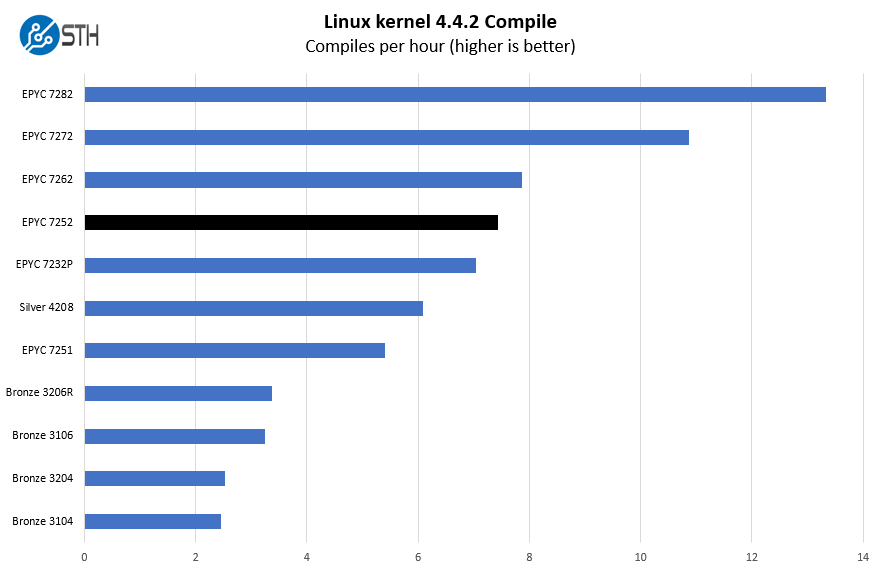
We still have not benchmarked the Intel Xeon Silver 4210R, but we wanted to focus on a comparison to the Xeon Bronze and Xeon Silver 4208. The reason for this is that we are currently being quoted 24+ day lead times on the Xeon Silver 4210R tray/ boxed CPUs from distributors. The Silver 4210R has list price of over $500 which makes it a competitor, albeit at a higher price. As a result, we are going to focus on the lowest-priced sub-$500 options in a socket and add in a few views of what moving slightly higher in the AMD EPYC 72×2 stack offers.
c-ray 1.1 Performance
We have been using c-ray for our performance testing for years now. It is a ray tracing benchmark that is extremely popular to show differences in processors under multi-threaded workloads. We are going to use our 8K results which work well at this end of the performance spectrum.
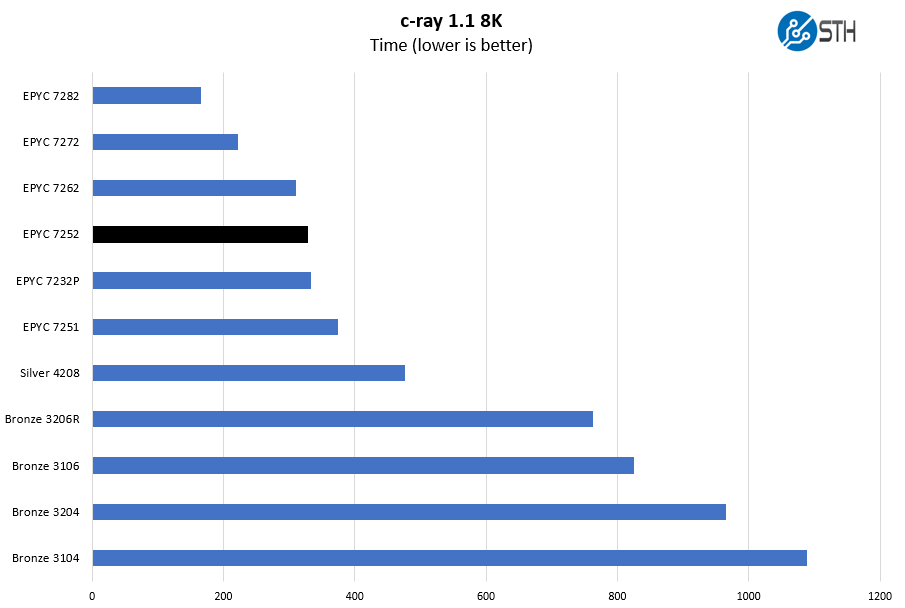
Here, we wanted to show that Intel has significantly lower-end options available for a socket with their Xeon Bronze series. If you simply do not need performance, then an Intel Xeon Bronze 3204 or Intel Xeon Bronze 3206R offer substantially lower costs.
7-zip Compression Performance
7-zip is a widely used compression/ decompression program that works cross-platform. We started using the program during our early days with Windows testing. It is now part of Linux-Bench.
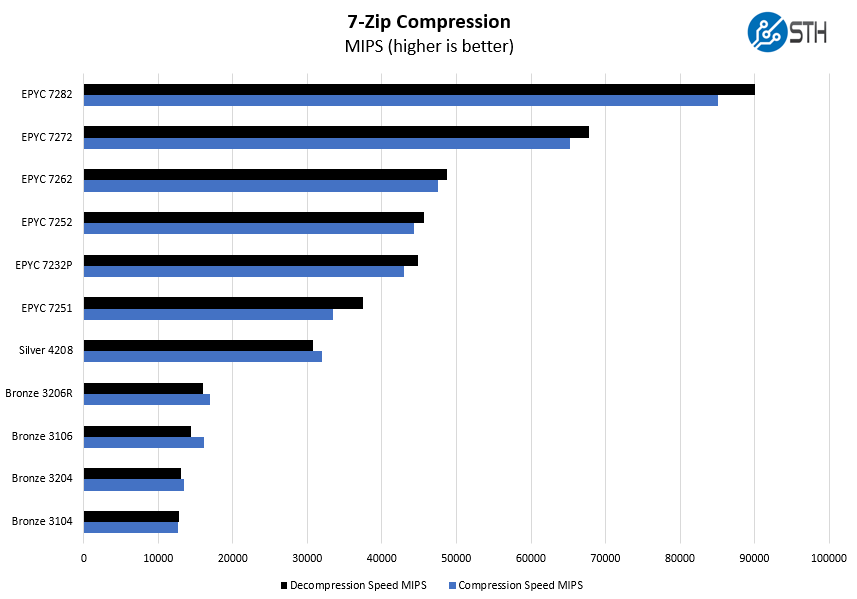
We are going to see a trend comparing the EPYC 7252 and the AMD EPYC 7232P. In virtually every workload the EPYC 7252 is slightly ahead due to larger cache even with the same clock speeds. At worst, the chips are very close in performance. We think there is a compelling point to be made for using the EPYC 7252 instead of the EPYC 7232P, even in single-socket servers given the $25 delta.
NAMD Performance
NAMD is a molecular modeling benchmark developed by the Theoretical and Computational Biophysics Group in the Beckman Institute for Advanced Science and Technology at the University of Illinois at Urbana-Champaign. More information on the benchmark can be found here. Here are the comparison results for the legacy data set:
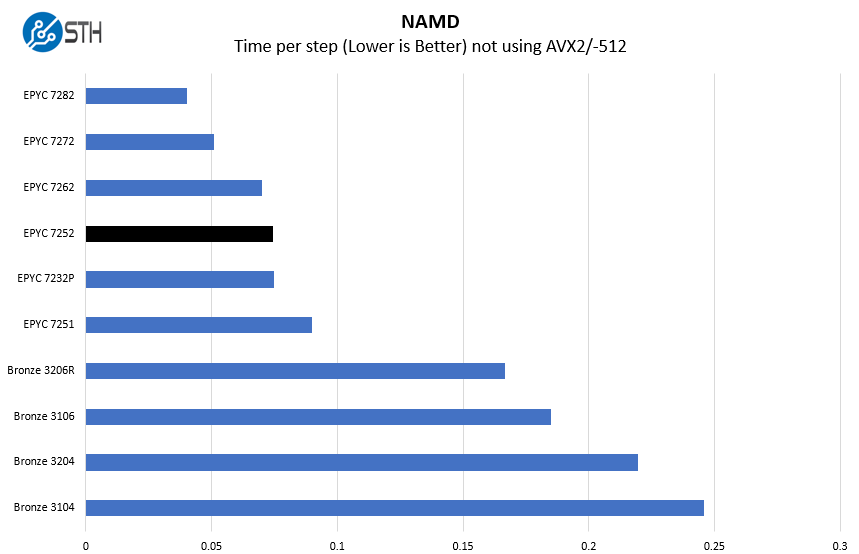
Here we wanted to focus on generational performance changes. The AMD EPYC 7251 is the predecessor of this chip. What you will notice is a significant performance bump across the board owing to the updated architecture.
Sysbench CPU test
Sysbench is another one of those widely used Linux benchmarks. We specifically are using the CPU test, not the OLTP test that we use for some storage testing.
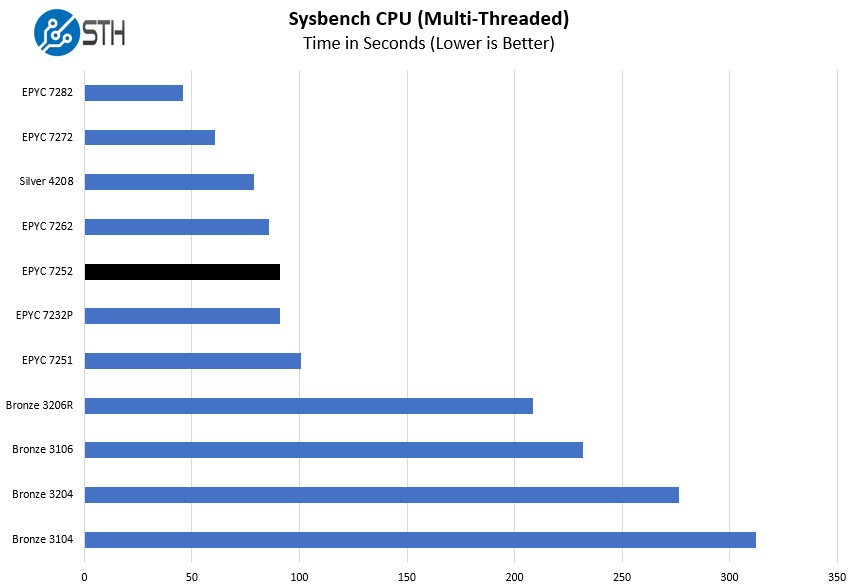
There is an enormous gap between the EPYC 7252 and the lower-cost Intel Xeon Bronze 3206R. AMD and Intel have vastly different thresholds for releasing low-performance chips. The Bronze 3206R is around 33% less expensive but we often see twice the performance form the EPYC part.
OpenSSL Performance
OpenSSL is widely used to secure communications between servers. This is an important protocol in many server stacks. We first look at our sign tests:
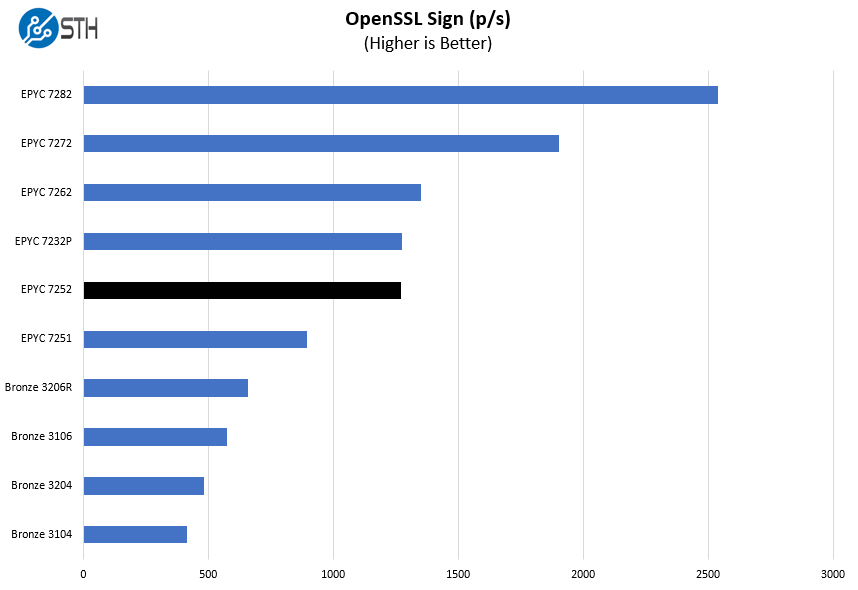
Here are the verify results:
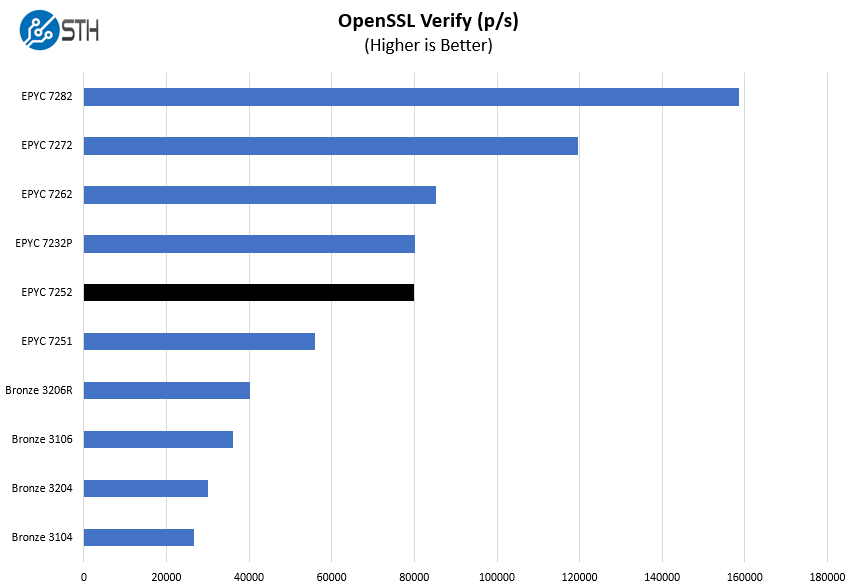
This is a case where the EPYC 7232P saw a victory over the EPYC 7252. We should mention that the delta here is well under 0.5% so this could be a normal test variation or small silicon differences. With the same core counts and clock speeds, we expect to see many results where they are close.
UnixBench Dhrystone 2 and Whetstone Benchmarks
Some of the longest-running tests at STH are the venerable UnixBench 5.1.3 Dhrystone 2 and Whetstone results. They are certainly aging, however, we constantly get requests for them, and many angry notes when we leave them out. UnixBench is widely used so we are including it in this data set. Here are the Dhrystone 2 results:
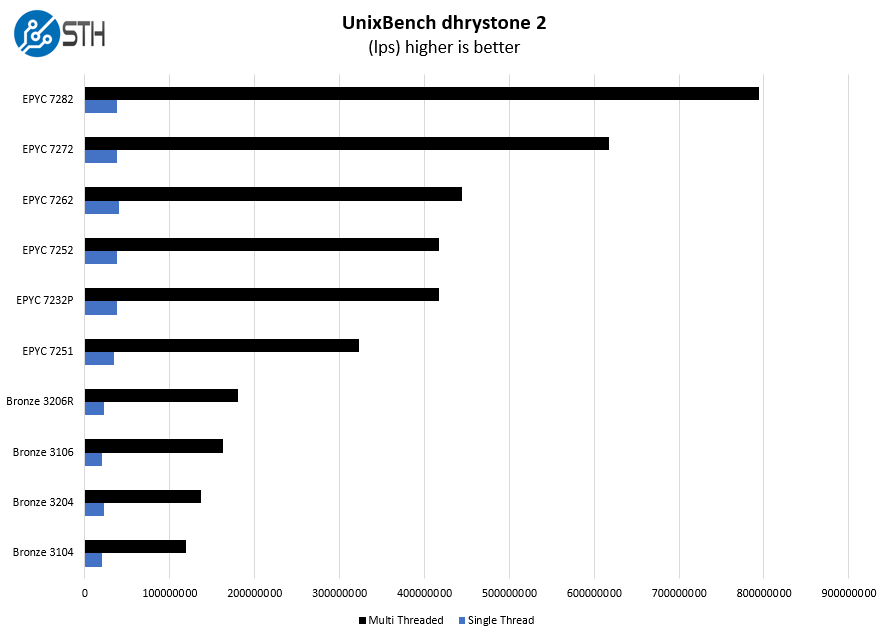
Here are the whetstone results:
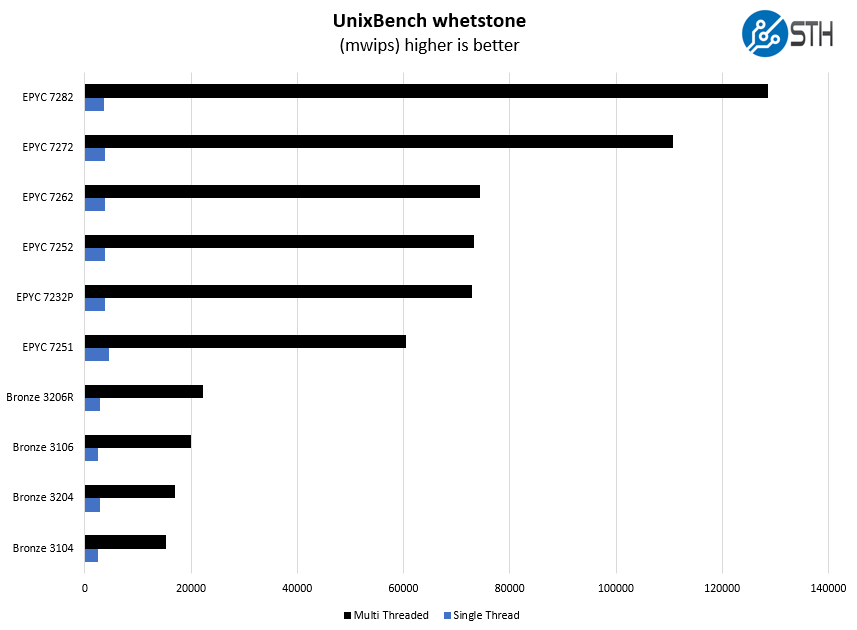
The key takeaway that we have been showing in these charts is that there is a lot of performance available by moving up to the stack to something like the AMD EPYC 7272 or AMD EPYC 7282. These 12 and 16 core parts simply offer more cores which also means they tend to consistently offer more performance.
Chess Benchmarking
Chess is an interesting use case since it has almost unlimited complexity. Over the years, we have received a number of requests to bring back chess benchmarking. We have been profiling systems and now use the results in our mainstream reviews:
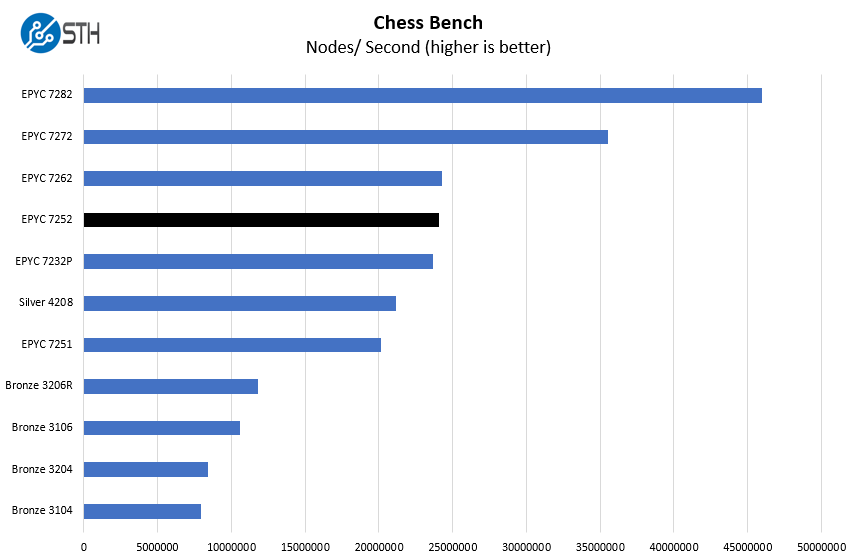
On the chess benchmarking side, we can see a similar trend. The EPYC 7282 is a $650 part. As a result, one can double the core count over the EPYC 7252 for only around a $175 list price uplift.
Next, we are going to take a look at some of the market dynamics before getting to our final words.


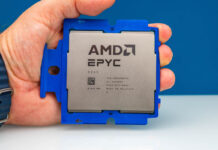
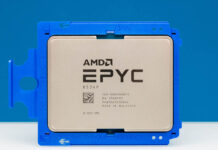
Timely review. Thanks. Hoping to see this EPCY in more PCIe lane-intensive offerings.
I bought this cpu a few months ago for my home server (running proxmox) and it’s a nice upgrade over my 9 year old Xeon E3-1230. I waffled over getting the 7262 for the extra 64MB of ram but based on these benchmarks I’m glad I didn’t.
64MB of cache